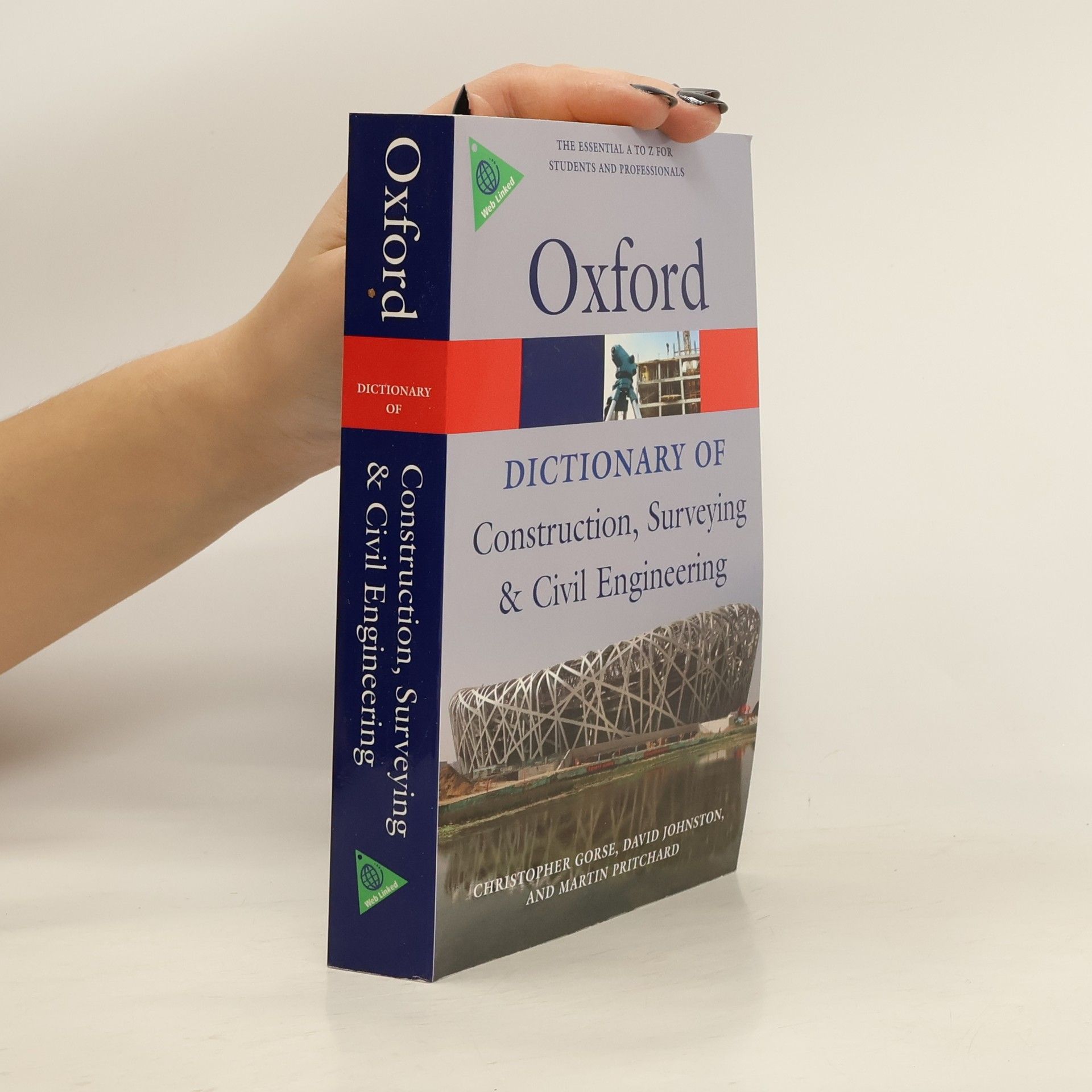This new dictionary is the most up-to-date A to Z of construction, surveying, and civil engineering terms and definitions available. Covering all core aspects of construction and related areas, it provides a one-stop reference for construction students and professionals.
David Johnston Books
David Johnston crafts imaginative worlds and intricate narratives in his spare time, offering readers journeys that are both unique and unexpected, regardless of length. His work, often exploring science fiction, horror, thriller, and drama, is characterized by its originality and its ability to immediately captivate the audience. Critics have noted his compelling storytelling and the immediate desire to know 'what happens next' after engaging with his tales.






The Cambridge Companion to Roman Law
- 554 pages
- 20 hours of reading
This book reflects the wide range of current scholarship on Roman law. The essays, newly-commissioned for this volume, cover the sources of evidence for classical Roman law; the elements of private law, as well as criminal and public law; and the second life of Roman law in Byzantium, in civil and canon law, and in political discourse from AD 1100 to the present. Roman law nowadays is studied in many different ways, which is reflected in the diversity of approaches in the essays. Some focus on how the law evolved in ancient Rome, others on its place in the daily life of the Roman citizen, still others on how Roman legal concepts and doctrines have been deployed through the ages. All of them are responses to one and the same thing: the sheer intellectual vitality of Roman law, which has secured its place as a central element in the intellectual tradition and history of the West.
This book explains the rules of Roman law in the light of the society and economy in which it operated. The main topics discussed are: the family and inheritance; property and the use of land; commercial transactions and the management of businesses; litigation and the assertion of legal rights.
The 28th Governor General's most personal and timely book is a passionate guide for turning empathy into action. As the world grapples with the severe pandemic, economic instability, political division, and various social issues, nations that thrive are those where empathy is alive and active. This book, aimed at a post-pandemic world, teaches readers how to cultivate empathy and transform it into meaningful action. Drawing on personal experiences, the author explores how the power of listening and caring can profoundly impact individuals, families, communities, and nations. It serves as a manual for a world in need of kindness, demonstrating the inherent goodness in people and how kindness can foster intelligent and compassionate societies. Through poignant stories and sharp observations, the author emphasizes that everyone possesses the power to effect change. With a practical focus, the book addresses critical issues such as education, immigration, healthcare, law, policing, business ethics, and criminal justice, highlighting insights gained during the COVID-19 crisis. Each chapter concludes with actionable steps for readers to improve the world, one deliberate act at a time, reinforcing the belief that empathy is the quickest path to peace and progress.
Why You Were Born Study Guide
- 202 pages
- 8 hours of reading
Exploring the profound question of purpose, this book emphasizes the importance of discovering one's true self and the unique reasons for existence. It guides readers to understand their Embedded Natural Abilities (ENA), empowering them to choose a fulfilling life path free from societal pressures and expectations. By applying the insights offered, individuals can break free from past limitations and embrace a life filled with joy and satisfaction, ultimately avoiding the regret of a life unfulfilled.
Blackstone's Police Investigators' Manual and Workbook 2020
- 1040 pages
- 37 hours of reading
The book features two essential components for preparing for the National Investigators' Exam (NIE): the Investigators' Manual and the Investigators' Workbook. The manual delivers comprehensive legal knowledge and meets syllabus requirements, while the workbook includes exercises and Type A multiple-choice questions designed to reinforce understanding and assess readiness for the exam. Together, they serve as a complete study resource for aspiring investigators.
Blackstone's Police Investigators' Manual and Workbook Online 2022
- 1024 pages
- 36 hours of reading
The book provides essential study materials for the National Investigators' Exam (NIE), featuring comprehensive legal knowledge and syllabus requirements in the Investigators' Manual. Accompanying this, the Investigators' Workbook includes exercises designed to reinforce understanding and offers Type A multiple-choice questions for effective exam preparation. Together, these texts serve as a valuable resource for aspiring investigators.
A Translation of Dante's Inferno
- 209 pages
- 8 hours of reading
Reprint of the original, first published in 1867.
Activating the Untapped Potential of Neurodiverse Learners in the Math Classroom
- 158 pages
- 6 hours of reading
All students deserve access to a rich and meaningful math curriculum. This book guides middle and high school teachers toward providing all learners- including neurodiverse students-with the support necessary to engage in rewarding math content.
Roman Law in Context
- 236 pages
- 9 hours of reading
This brief survey of Roman law in practice sets the law in its social and economic context, avoiding all unnecessary legal technicalities, and shows its importance for a wider understanding of Roman history. The second edition has been extensively updated and includes a new chapter on crime and punishment.